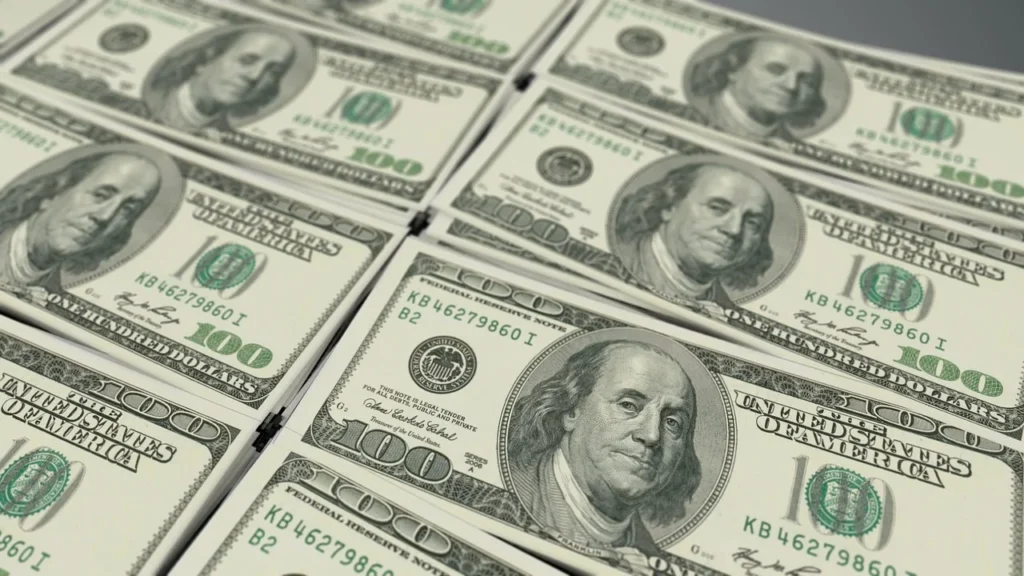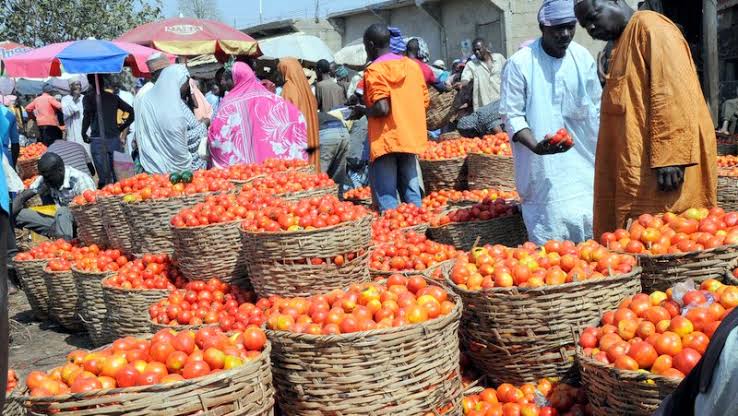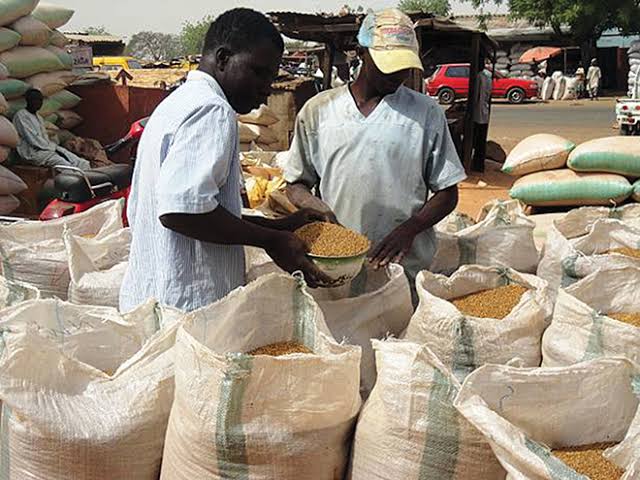Nigeria’s external reserves have surpassed the $42 billion mark, rising to $42.225 billion as of Thursday, September 25, 2025, the highest in over six years.
According to the latest data from the Central Bank of Nigeria (CBN), the country’s external reserve has increased by over $692 million in 18 days. It also shows that the reserve has been on an upward swing since the 14th of July 2025.
The closest the external reserve has gotten to the present figure was on September 27, 2019, when it hit $41.992 billion
This is despite the volatility of the crude oil market, with prices at below $70 per barrel as against the 2025 budget benchmark of $75 per barrel. Crude oil has, over the decade, been Nigeria’s biggest foreign exchange earner, contributing about 90%.
Analysts have attributed this rise in Nigeria’s external reserves to an increase in oil revenue due to a much-improved output from what it used to be.
They also listed other factors to include general improvement in the macroeconomic environment, which is driving confidence and influencing forex inflows from autonomous sources into the economy, external loans by the government, which come in foreign currency, a drastic drop in fuel importation, which has reduced pressure on the forex market and external reserves, among others.
NNPC transparency, a factor
In an exclusive chat with Nairametrics, a former Director General of the Lagos Chamber of Commerce and Industry (LCCI) and founder/Chief Executive Officer of the Centre for the Promotion of Public Enterprise, Dr Muda Yusuf, said that a number of factors have been responsible for the rise in the country’s external reserves, especially in the last few months.
Apart from several other factors, Dr Yusuf also linked this to a much better managed NNPC with an improved transparency level at the state-owned oil firm.
He said, ‘’A number of factors have been responsible for this. First is the fact that our oil output has improved over what it used to be, and I think it continues to improve. And don’t forget the crude oil, oil and gas continue to be the dominant contributor to our foreign exchange earnings.
‘’Secondly, we now have a much better managed NNPC. I think some sanity and transparency level have also improved in NNPC, and I think that is also a factor. The third factor is the fact that the general improvement in the macroeconomic environment is also driving confidence, which is, of course, influencing the inflows from autonomous sources into the economy.’’
Going further, Yusuf, who is also an economist, pointed out that a look at the data shows that autonomous inflows have been increasing steadily since the reforms by the CBN.
He said, ‘’I’m talking of funds from the IMTOs, the diaspora and all of that. And even the export proceeds have also been improving because the reform has also positively impacted non-oil exports.
‘’So, we are seeing a lot of inflows from there. Then, of course, there are a few of the borrowing components which are in foreign exchange; some of those things are also because when those external loans come in, they come in foreign currency, and of course, they sit with the central bank, where most of the expenditures are done in Naira. So those foreign loans also, I think, play a part.
‘’Also, a drastic drop in fuel importation is a factor. It reduced pressure on the forex market and, by extension, on reserves.’’
The Research Head, Afrinvest, Damilare Asimiyu, pointed out that the improved external reserves now provide over nine months of import cover, signalling a very positive outlook.
He said, ‘’The drivers of Nigeria’s growing external reserves include resilient portfolio inflows attracted by high-yield OMO bills, sustained improvement in crude oil output, and stronger remittance inflows as regulated IMTOs consolidate their market share. On the demand side, the CBN has effectively curtailed speculative activities, while Dangote’s supply of refined PMS and diesel has helped lower import bills.
‘’At $42bn, reserves now provide well over nine months of import cover. For context, any emerging market with six months or more is considered to be in a strong position. This signals a positive outlook for Nigeria’s external sector stability.’’
A Firm CBN
Giving his own insight on reasons for the increase in the country’s external reserves, a Bureau De Change (BDC) operator, Abubakar Ardo, said the CBN has been firm with its reforms with the tightening of forex access, monitoring of import activities and enforcing compliance.
Ardo said, ‘’From my perspective as a bureau de change operator, the build-up in Nigeria’s external reserves, now approaching $42 billion, is being driven by a mix of key factors.
‘’First, crude oil earnings have improved, both in terms of production volumes and international prices. This has strengthened dollar inflows for the government.
‘’Second, the Central Bank of Nigeria (CBN) has been firm in its demand management strategies — tightening forex access, monitoring import activities, and enforcing compliance. These measures have reduced unnecessary pressure on the reserves.
‘’Third, diaspora remittances have been stronger, with Nigerians abroad sending more funds back home, partly encouraged by the weaker naira, which makes remittances more attractive. Lastly, foreign portfolio inflows have picked up. With interest rates and bond yields rising, investors are showing renewed appetite for Nigerian assets, channeling fresh dollars into the economy.
‘’So, the combined effect of higher oil receipts, tighter forex policies, increased remittances, and cautious investor confidence is what is sustaining the reserves at this level.’’
The CBN Governor, Olayemi Cardoso, in a communique after the 302nd Monetary Policy Meeting (MPC) highlighted stronger buffers with gross external reserves rising to $43.05 billion compared with the $40.51 billion at the end of July 2025, and the current account surplus improving to $5.28 billion in Q2 compared to $2.85 billion in Q1 2025.
He noted that the significant improvement in the oil sector, which grew by 20.46% compared to 1.87% in the preceding quarter, has helped to further boost the foreign exchange reserves and sustain the stability of the foreign exchange market.
Marking two years in office, the Governor reaffirmed: “Nigerians can trust the CBN. Reforms have stabilised the economy, restored investor confidence, and built a platform for sustainable growth. Confidence in the naira is returning, FX and reserves stability are here to stay.”
Sustaining The Tempo
On how far this positive development will go, Dr Yusuf was optimistic that the government will sustain the reforms, particularly around FX as well as stability with respect to oil production.
He said, ‘’Generally, if you continue the reform, I think as long as the confidence level is high and it’s maintained, those inflows are likely to continue to come in because those inflows come in on the back of the liberalized foreign exchange markets and on the back of the general elevation of investors’ confidence in the economy. Yes, some people may argue that some investors are leaving, but again, some investors are also coming in.
‘’So, it depends on how well investors are able to adjust to the current economic dynamics. But the prospect of sustaining it is good, but again I must emphasize that what happens to the oil and gas sector is extremely critical to the sustenance of these results. And of course, we need to also ensure debt sustainability.
‘’That’s also very important because debt service commitment is also increasing, and we need to worry about that because some of these foreign loans have to be serviced also in foreign currency, and that may also put pressure when it’s time to service those debts.’’
What You Should Know
In a related development, recall that about two months ago, the CBN Governor, Yemi Cardoso, had revealed that Nigeria’s external reserves had climbed to $40.11 billion as of July 2025.
Cardoso at the MPC briefing on July 22, noted that the $40.11 billion reserve level represents approximately 9.5 months of import cover, signaling a significant boost to Nigeria’s foreign currency buffer.
This marked a significant rebound in Nigeria’s foreign currency buffers amid efforts to stabilize the exchange rate and rebuild investor confidence.
Credit: Nairametrics
WARNING: If You Are Not 18+, Don’t Click The Link Below 👇🫣
https://pupilchangesjustified.com/m3e85u39j?key=f0014e9d9438d5115e4d66e73ca3f04b
Please don’t forget to “Allow the notification” so you will be the first to get our gist when we publish it.
Drop your comment in the section below, and don’t forget to share the post.
Never Miss A Single News Or Gist, Kindly Join Us On WhatsApp Channel:
https://whatsapp.com/channel/0029Vad8g81Eawdsio6INn3B
Telegram Channel:
https://t.me/gistsmateNG



